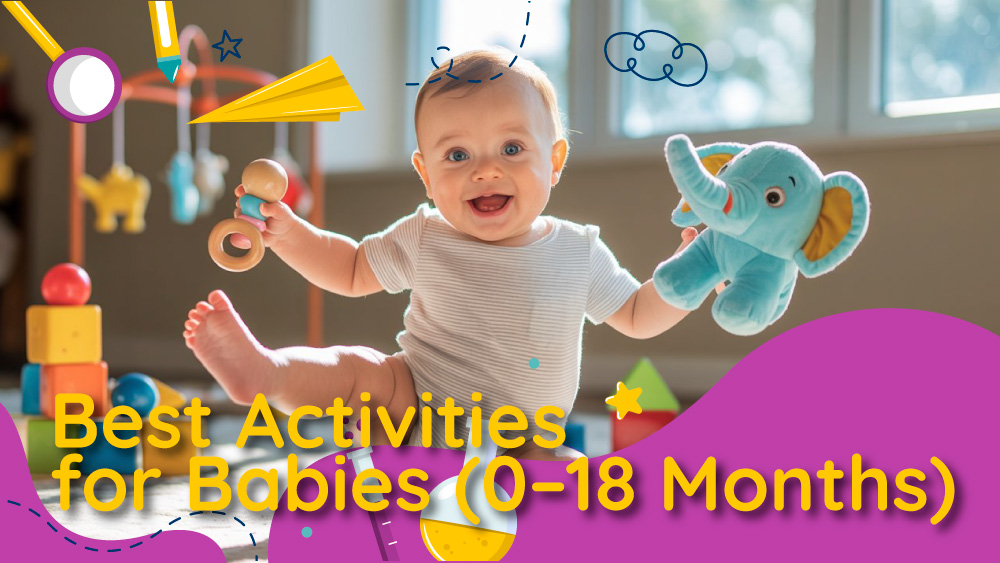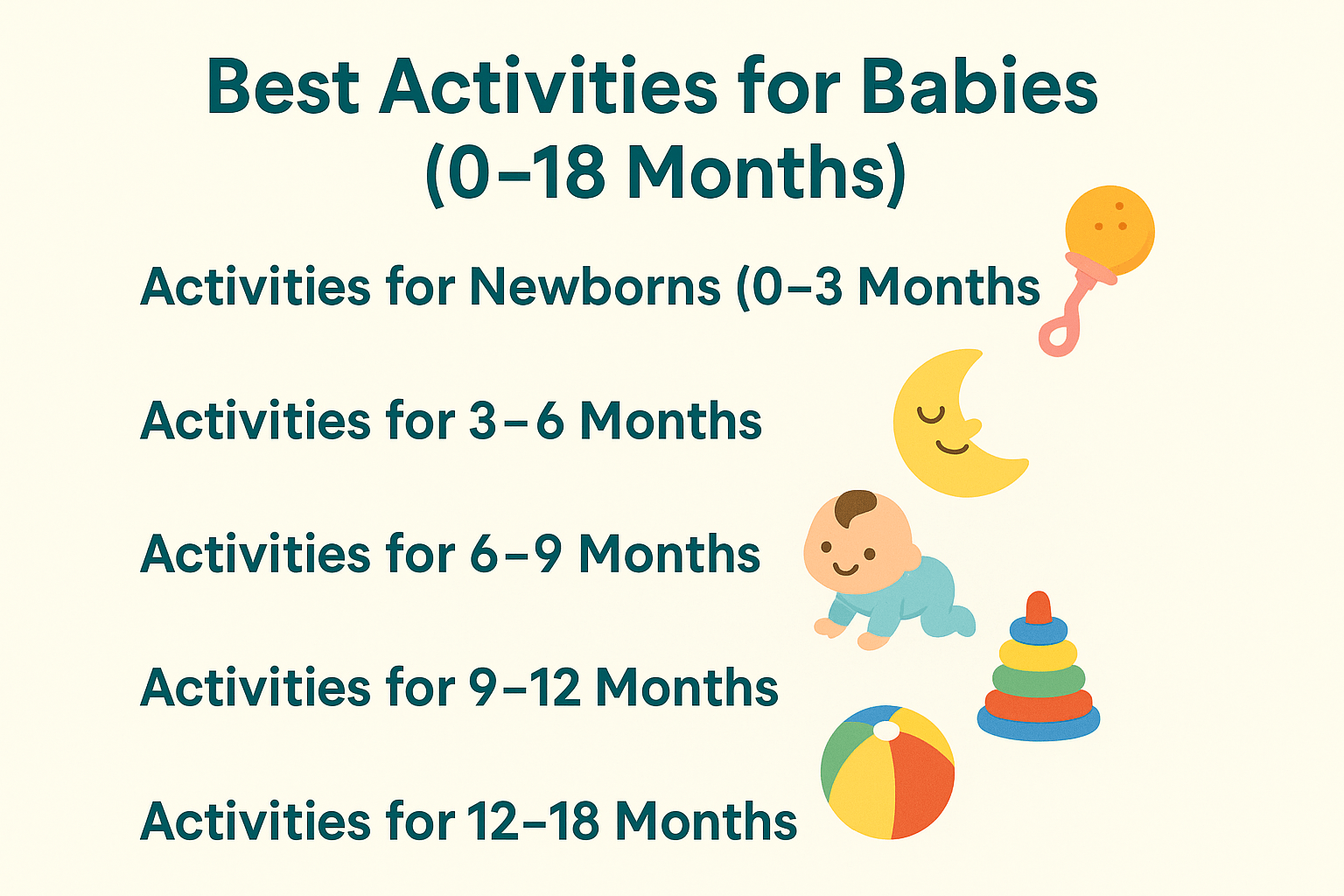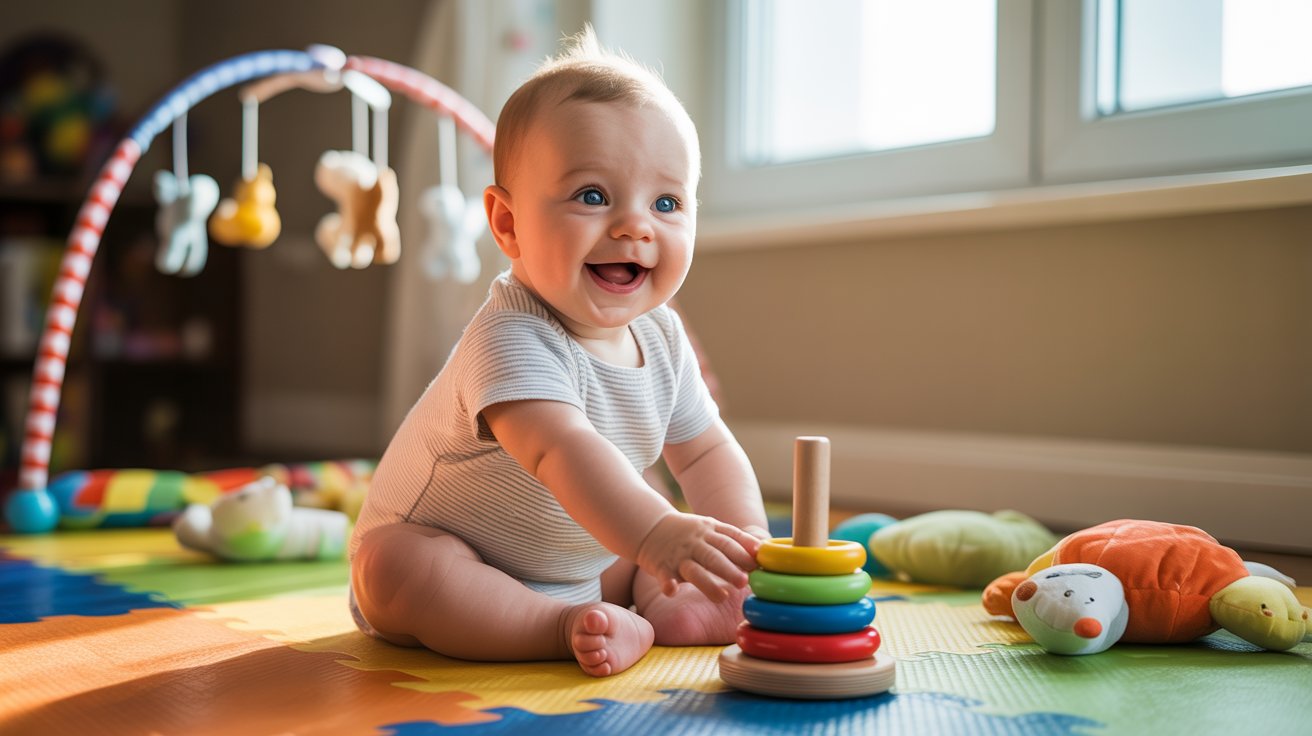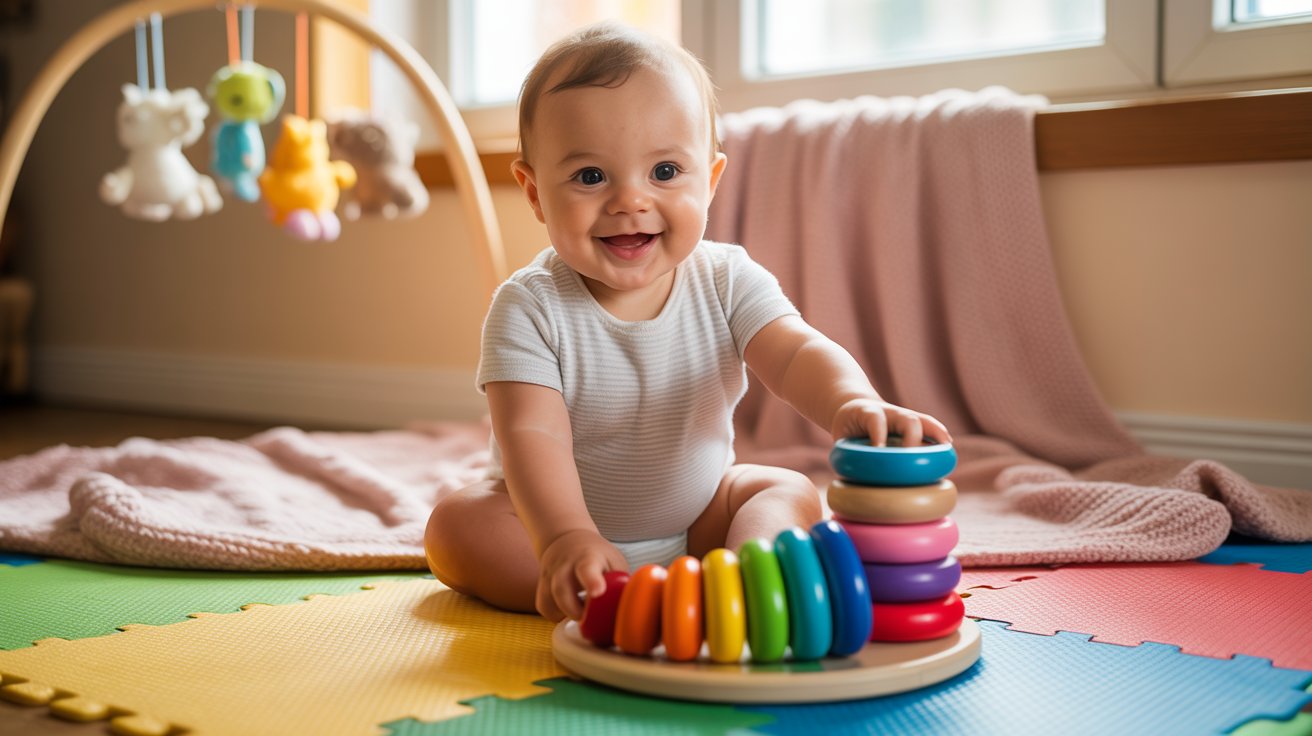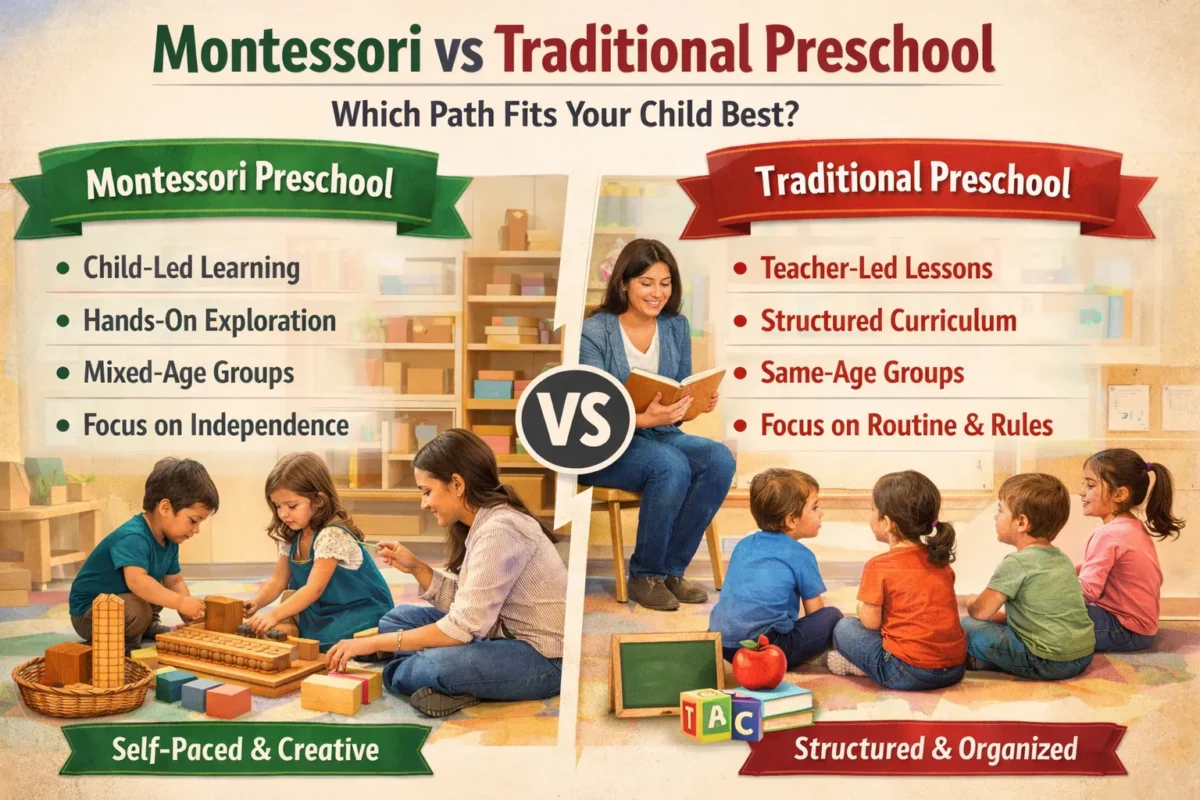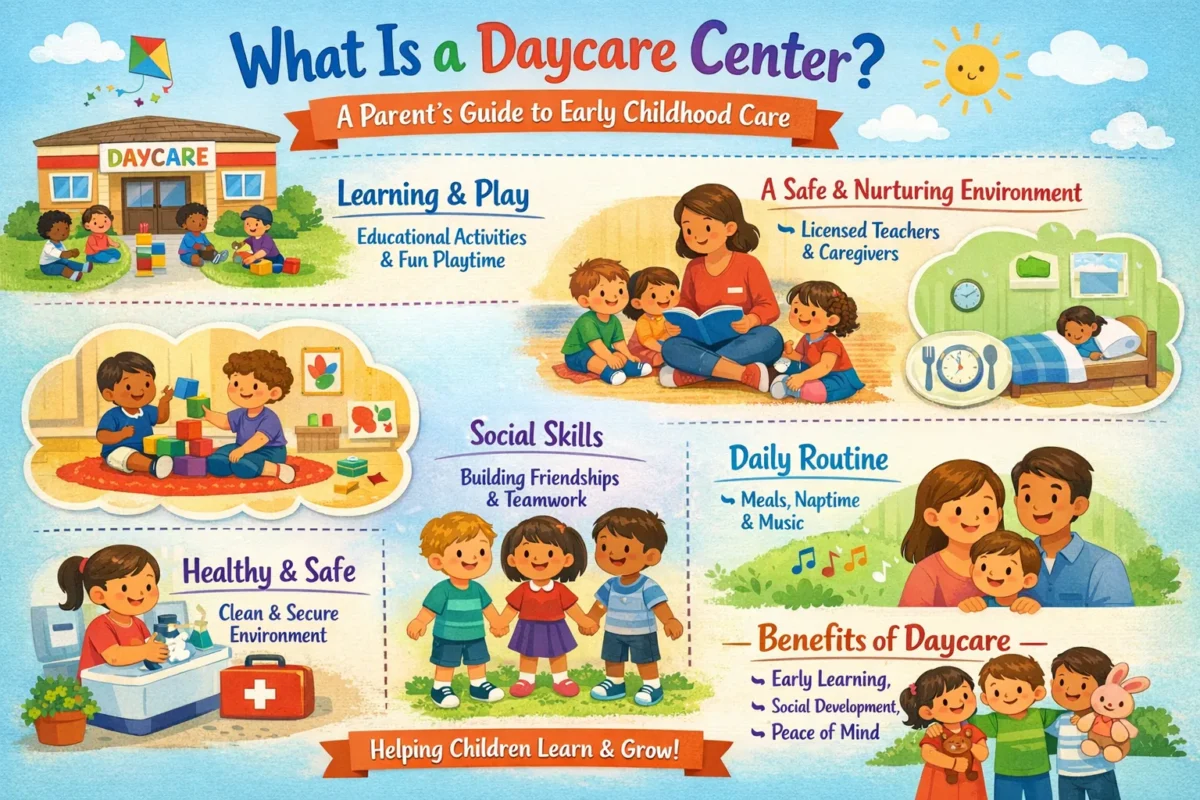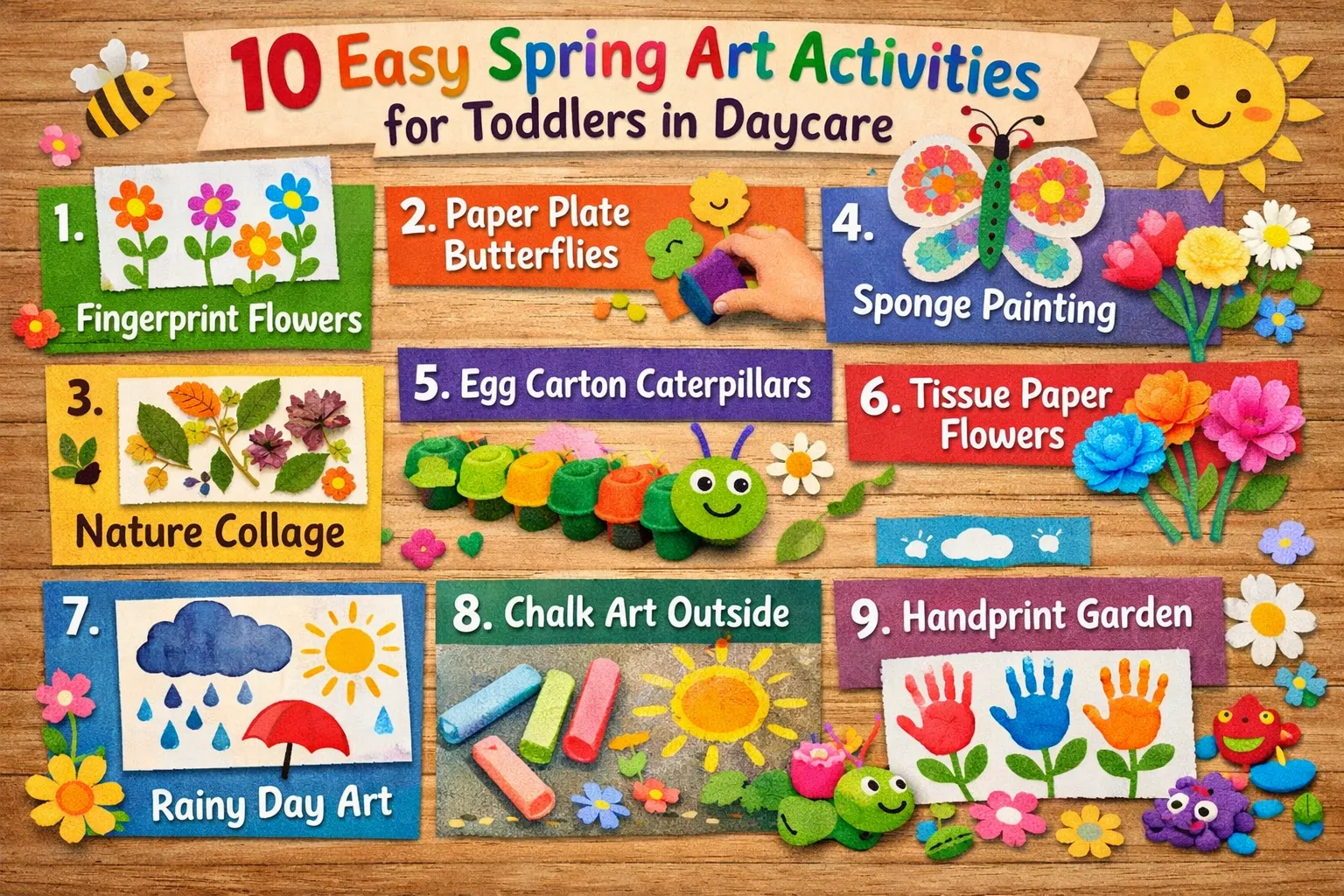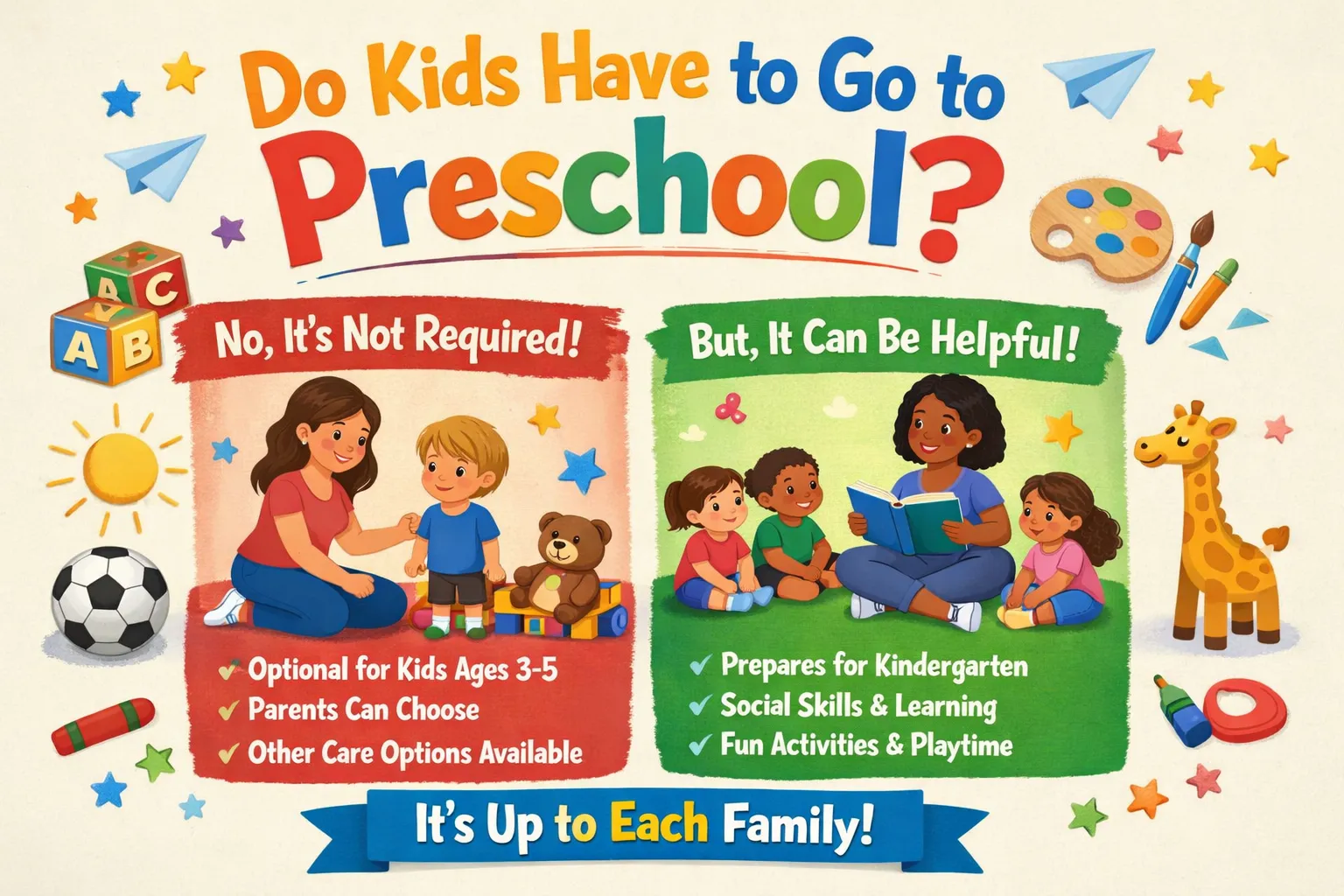The first 18 months of your baby’s life are filled with wonder, rapid growth, and precious milestones. From tummy time to first steps, every interaction you have with your baby is an opportunity to nurture their development. Whether you’re a new parent or your baby is enrolled at a daycare like Alpharetta Daycare, knowing which infant activities best support their growth is essential.
In this guide, we break down age-appropriate baby activities to help build your little one’s cognitive, motor, and social skills — all while bonding and having fun.
Why Infant Activities Matter
Babies learn through play. Activities that engage their senses, encourage movement, and support interaction can have a long-lasting impact on:
-
Brain development
-
Fine and gross motor skills
-
Social and emotional bonding
-
Communication and language acquisition
A structured activity routine can also help babies feel safe, regulated, and better prepared for transitions — especially in a daycare environment.
Activities for Newborns (0–3 Months)
At this stage, your baby is adjusting to life outside the womb. Their vision is blurry, and their movements are reflexive. Keep activities simple and calming.
1. Tummy Time (Start with 2–3 Minutes Daily)
Helps develop neck and core strength. Try placing your baby on a play mat or your chest.
2. Black and White Cards
Use high-contrast flashcards or books to stimulate early visual development.
3. Gentle Music and Singing
Play lullabies or sing softly. Music helps regulate mood and supports auditory development.
4. Face-to-Face Time
Babies love looking at your face. Hold them close and talk with expression.
Activities for 3–6 Months
Your baby is more alert and curious. They’ll begin to reach, roll, and grasp.
5. Mirror Play
Place a safe mirror during tummy time. Babies love watching their reflection.
6. Grasp and Shake Toys
Introduce soft rattles and sensory toys to develop grasp reflex and hand-eye coordination.
7. Reach-and-Kick Gym
A baby gym encourages movement of arms and legs, supporting motor development.
8. Read Aloud Daily
Use board books with bright pictures and simple text. Reading supports language development.
Activities for 6–9 Months
At this age, babies love to explore by mouthing, banging, and dropping objects. Their mobility is improving with rolling and crawling.
9. Peekaboo Games
Helps develop object permanence and encourages bonding.
10. Treasure Baskets
Fill a basket with safe household items of different textures (spoons, fabric scraps, silicone cups).
11. Rolling Ball Play
Roll a soft ball back and forth. This builds coordination and social skills.
12. Bubble Time
Babies love watching bubbles float — a great activity for visual tracking and laughter!
Activities for 9–12 Months
Now your baby might be crawling, pulling up, and even taking steps! Their curiosity is at an all-time high.
13. Stacking Cups or Soft Blocks
Encourages problem-solving and fine motor skills.
14. Push-and-Pull Toys
Support muscle strength and walking practice.
15. Dance Together
Hold your baby and dance to music — it helps rhythm and balance.
16. Name Game
Point to objects and say their names. Babies are building receptive language quickly.
Want to know more about how our daycare supports this stage?
Activities for 12–18 Months
Your baby is turning into a toddler! They’re ready for more independence and interactive play.
17. Simple Puzzles and Shape Sorters
Supports critical thinking and hand-eye coordination.
18. Pretend Play with Dolls or Stuffed Animals
Boosts emotional and imaginative skills.
19. Water Play (Supervised)
Splashing in a small tub or sink enhances sensory awareness.
20. Outdoor Walks and Nature Time
Let them touch leaves, watch birds, or play in the grass.
21. Art Time: Crayons and Large Paper
Safe, washable crayons give toddlers an outlet for creativity and fine motor skills.
Activities for All Ages (0–18 Months)
22. Sign Language Basics
Teaching baby sign language for words like “milk,” “more,” or “all done” reduces frustration and boosts early communication.
23. Songs with Hand Motions
Classics like “Itsy Bitsy Spider” combine music, rhythm, and motor practice.
24. Sensory Bags
Fill sealed Ziploc bags with gel, beads, or soft fabric for squishy, safe exploration.
25. Storytime Routine
Make reading a consistent part of your day. This builds strong literacy skills even before they speak.
How Daycare Enhances These Activities
At Daycare Alpharetta, our trained caregivers use all these developmental activities — and more — to create a nurturing, stimulating routine tailored to each baby’s stage.
We offer:
-
Age-based play and routines
-
Sensory-rich environments
-
Daily communication with parents
-
Individual attention and safety-first care
Enrolling your child in a professional daycare not only supports your family’s schedule but also surrounds your baby with early learning opportunities every day.
Learn more about our structured infant daycare curriculum.
Tips for Choosing Baby Activities at Home
-
Follow your baby’s cues — don’t force play when they’re tired or overstimulated.
-
Always supervise, especially during tummy time, water play, or sensory exploration.
-
Choose safe, age-appropriate materials.
-
Keep it simple! Babies benefit more from loving interaction than fancy toys.
Final Thoughts
Engaging in the right baby activities can transform your child’s early months into a time of joy, connection, and incredible development. Whether you’re doing infant activities at home or entrusting your child to a loving daycare, every giggle, roll, and babble counts.
FAQ: Daily Activities for Babies 0–18 Months
1. What are the best activities for newborns (0–3 months)?
The best activities for newborns include tummy time, gentle music, black-and-white cards, and face-to-face bonding. These help support sensory development and early motor skills.
2. How much tummy time does my baby need each day?
Start with just 2–3 minutes a few times a day and gradually increase to about 20–30 minutes total by the time your baby is 3 months old. Always supervise tummy time.
3. What can I do to help my 6-month-old baby learn and grow?
Offer sensory play, read daily, introduce safe toys they can grasp, and play simple games like peekaboo. These support motor, language, and cognitive development.
4. How do baby activities support development?
Age-appropriate baby activities build motor skills, language, problem-solving, and social interaction. They also strengthen your bond and support healthy brain growth.
5. Can I do baby activities at home without special toys?
Yes! You can use everyday items like kitchen spoons, fabric, or mirrors. What matters most is interaction, variety, and safety.
6. What activities prepare babies for daycare?
Simple routines, reading, social play, and consistent sleep schedules help babies adjust more easily to a structured daycare environment.
7. How do daycares support infant development through activities?
Quality daycares offer guided play, sensory exploration, music, outdoor time, and age-based learning routines to support each stage of development.
